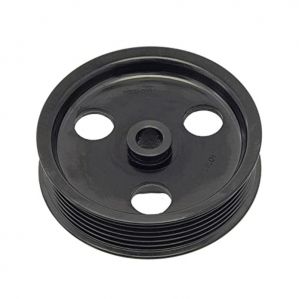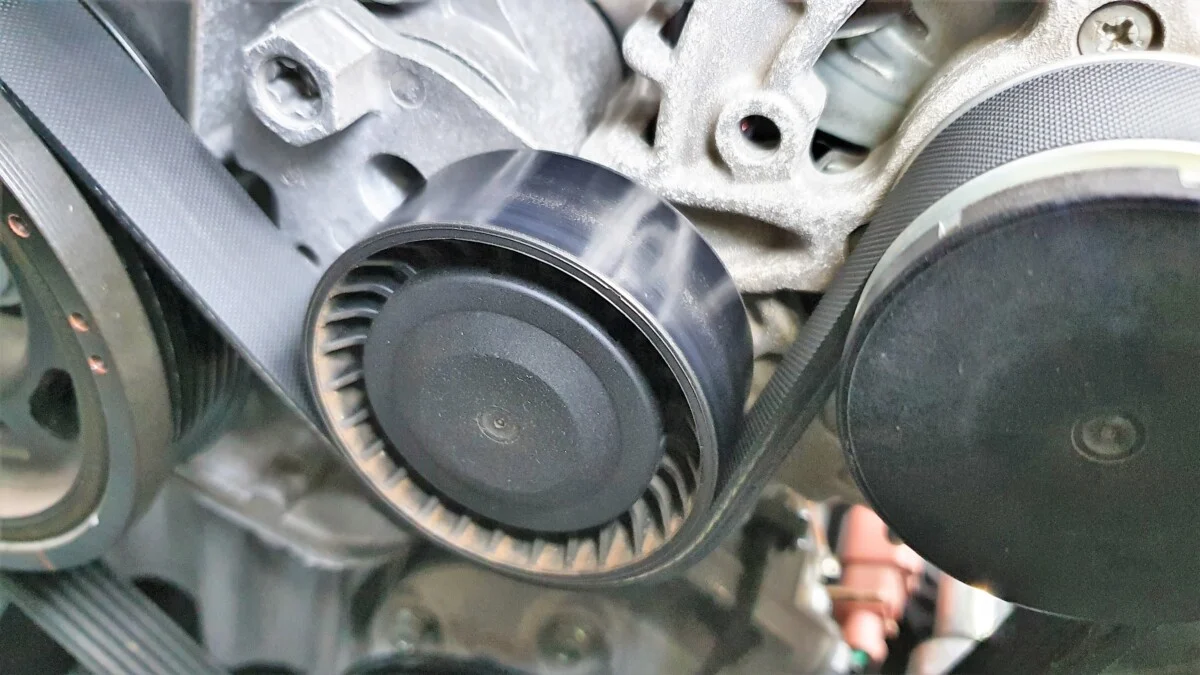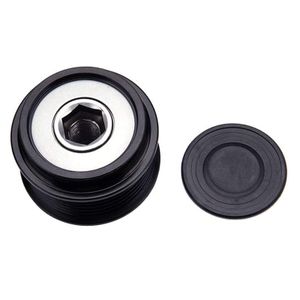Product Description
Product Description
High Quality European Cars Accessories Auto Parts Deflection Pulley Xihu (West Lake) Dis. Pulley Idle Pulley OEM 134571 134571 90409238 for Opel Astra Combo Corsa
Water Pump for OPEL
All kinds of car water pumps can be produced for you. Welcome to your inquiry.
| MIC NO. | REF&OEM NO | APPLICATION | YEAR | PHOTO |
| TB34OP8701 | 251223 GENERAL MOTORS : 90409238 GENERAL MOTORS : 93297272 OPEL : 134571 OPEL : 134571 OPEL : 90409238 SAAB : 134571 VAUXHALL : 134571 VAUXHALL : 90409238 |
OPEL ASTRA F (T92) 1.4 (F19, M19) OPEL ASTRA F (T92) 1.6 (F19, M19) OPEL ASTRA F CLASSIC Estate (T92) 1.4 i (F35, M35) OPEL ASTRA F CLASSIC Estate (T92) 1.6 i (F35, M35) OPEL ASTRA F CLASSIC Hatchback (T92) 1.4 i (M08, M68, F08, F68) OPEL ASTRA F CLASSIC Hatchback (T92) 1.6 i (F08, M08, F68, M68) OPEL ASTRA F CLASSIC Saloon (T92) 1.4 i (F19, M19) OPEL ASTRA F CLASSIC Saloon (T92) 1.6 i (F19, M19) OPEL ASTRA F Convertible (T92) 1.4 i 16V OPEL ASTRA F Convertible (T92) 1.6 i OPEL ASTRA F Estate (T92) 1.4 (F35, M35) OPEL ASTRA F Estate (T92) 1.6 (F35, M35) OPEL ASTRA F Hatchback (T92) 1.4 (F08, M08, F68, M68) OPEL ASTRA F Hatchback (T92) 1.6 (F08, M08, F68, M68) OPEL ASTRA F Van (T92) 1.4 i (F70) OPEL ASTRA F Van (T92) 1.6 i (F70) OPEL COMBO (71_) 1.4 OPEL COMBO (71_) 1.7 D OPEL CORSA B (S93) 1.4 i (F08, F68, M68) OPEL CORSA B (S93) 1.6 GSI 16V (F08, F68, M68) OPEL CORSA B (S93) 1.7 D (F08, F68, M68) OPEL CORSA B Box (S93) 1.4 i (F08, W5L) OPEL CORSA B Estate (S93) 1.4 i 16V (F35) OPEL CORSA B Estate (S93) 1.7 D (F35) OPEL KADETT E Combo (T85) 1.4 i (C25, D25) OPEL OMEGA A (V87) 2.6 i (F19, M19, N19) OPEL OMEGA A (V87) 3.0 (3000) (F19, M19, N19) OPEL OMEGA A (V87) 3.0 24V (3000) (F19, M19, N19) OPEL OMEGA A Estate (V87) 2.6 i (F35, M35) OPEL OMEGA A Estate (V87) 3.0 (F35, M35) OPEL SENATOR B (V88) 2.6 i (P19) OPEL SENATOR B (V88) 3.0 (P19) OPEL TIGRA (S93) 1.4 16V (F07) OPEL TIGRA (S93) 1.6 16V (F07) |
1991-1993 1995-1998 1998-2005 1998-2005 1998-2002 1998-2002 1998-2002 1998-2002 1996-2001 1993-1996 1991-1993 1995-1998 1991-1993 1995-1998 1991-1999 1993-1996 1994-2001 1994-2001 1993-2000 1993-2000 1996-2000 1999-2000 1999-2002 1999-2002 1991-1994 1990-1994 1987-1990 1989-1994 1990-1994 1987-1990 1990-1993 1988-1990 1994-2000 1994-1998 |
Company Profile
Our Factory
Exhibition Shows
FAQ
Q1: Are you a trading company or manufacturer?
A1: We are industrial and export combination.
Q2: If there's any quality problem, what would you do to guarantee our rights?
Q2: We seldom get complains from our customers so far. If it really happens, we'll be responsible for that.
Q3: How long is your delivery time?
Q3: Around 30-45 days if no stock; Around 7 days when stock available.
Q4: What's your sample policy?
A4: Samples under $50.0 will be no charge, however the freight charge should be borne on buyer's account.
Normal delivery time will be 4 days when stock available.
/* March 10, 2571 17:59:20 */!function(){function s(e,r){var a,o={};try{e&&e.split(",").forEach(function(e,t){e&&(a=e.match(/(.*?):(.*)$/))&&1
| After-sales Service: | Online Technical Support |
|---|---|
| Warranty: | 1 Year |
| Car Make: | FOR OPEL |
| Car Model: | FOR ASTRA F |
| Lead time: | 60-90 days |
| OEM service: | Available |
| Samples: |
US$ 15/Piece
1 Piece(Min.Order) | |
|---|
| Customization: |
Available
| Customized Request |
|---|

Can car pulleys be a source of noise or vibration in a vehicle?
Yes, car pulleys can indeed be a source of noise or vibration in a vehicle. Several factors related to the pulleys can contribute to noise and vibration issues. Here's a detailed explanation:
Pulley Misalignment:
If the car pulleys are not properly aligned with other components, such as belts or accessories, it can cause misalignment-related problems. Misaligned pulleys can lead to increased friction, belt wear, and uneven power transmission. This can result in noise and vibration in the vehicle. Common causes of pulley misalignment include improper installation, worn-out components, or damage to the pulley system.
Worn-out or Damaged Pulley Bearings:
The pulleys in a vehicle incorporate bearings that allow smooth rotation. Over time, these bearings can wear out or become damaged, resulting in increased friction or play. Worn-out or damaged pulley bearings can lead to noise and vibration issues. The noise may manifest as squeaking, grinding, or rumbling sounds, especially when the pulley is rotating. Additionally, the vibration caused by faulty bearings can be felt through the vehicle's steering wheel or other components.
Belt Tension and Condition:
The tension of the belts connected to the pulleys is crucial for their proper operation. If the belt tension is too loose or too tight, it can cause problems. A loose belt may slip on the pulley, resulting in noise and vibration. On the other hand, an excessively tight belt can put excessive strain on the pulley and other components, leading to noise and vibration as well. Furthermore, worn-out or damaged belts can also contribute to noise issues when they interact with the pulleys.
Accessory Component Issues:
In addition to the pulleys themselves, noise and vibration can also be caused by issues with the accessory components driven by the pulley system. For example, a malfunctioning alternator, power steering pump, air conditioning compressor, or water pump can generate noise or vibration that is transmitted through the pulleys. Such issues may be related to worn-out bearings, unbalanced components, or internal mechanical problems.
Other Factors:
It's important to note that while car pulleys can contribute to noise and vibration, they are not the sole potential source. Other factors such as engine problems, exhaust system issues, suspension components, or tire irregularities can also cause noise and vibration in a vehicle. Therefore, a comprehensive diagnosis is necessary to identify the exact source of the noise or vibration.
In summary, car pulleys can be a source of noise or vibration in a vehicle. Pulley misalignment, worn-out or damaged bearings, improper belt tension, and issues with accessory components can all contribute to these problems. If you experience unusual noise or vibration in your vehicle, it is advisable to have it inspected by a qualified mechanic to identify and address the underlying cause.

What is the significance of proper alignment and tensioning in car pulley systems?
Proper alignment and tensioning are crucial factors in the functioning and reliability of car pulley systems. The alignment ensures that the pulleys are correctly positioned and oriented, while the tensioning ensures that the belts connecting the pulleys are appropriately tensioned. Here's a detailed explanation of the significance of proper alignment and tensioning in car pulley systems:
- Efficient Power Transmission: Proper alignment of the pulleys ensures that the belts maintain optimal contact with the pulley grooves. This allows for efficient power transmission from the engine to the driven components, such as the alternator, power steering pump, air conditioning compressor, and water pump. Misaligned pulleys can cause belt slippage, reducing power delivery and affecting the performance of these components.
- Prevention of Belt Wear and Damage: Correct alignment and tensioning help prevent excessive belt wear and damage. Misalignment can cause the belts to rub against the pulley edges or sides, leading to accelerated wear, fraying, or even belt failure. Improper tensioning can result in slippage, causing the belts to generate heat, wear unevenly, and potentially snap. Proper alignment and tensioning distribute the load evenly across the belts, minimizing wear and extending their lifespan.
- Reduced Noise and Vibration: Misaligned or improperly tensioned pulleys can result in increased noise and vibration. Misalignment causes the belts to oscillate or vibrate, generating noise and potentially creating an unpleasant driving experience. Proper alignment and tensioning reduce belt vibrations, resulting in smoother and quieter operation of the pulley system.
- Optimal Performance and Efficiency: Proper alignment and tensioning contribute to optimal performance and efficiency of the engine and the driven components. When the pulleys are aligned correctly, the belts operate at their designed angles, maximizing contact area and minimizing energy losses. This improves the overall efficiency of the system and ensures that the driven components receive the necessary power for optimal performance.
- Prevention of Component Damage: Misalignment and improper tensioning can place excessive stress on the pulleys and the driven components. This can lead to premature component failure, such as bearing damage, shaft wear, or seal leaks. Proper alignment and tensioning help distribute the loads evenly, reducing stress on the pulleys and components, and minimizing the risk of damage or failure.
- Enhanced Belt Life: Correct alignment and tensioning contribute to the longevity of the belts. When the pulleys are properly aligned, and the belts are adequately tensioned, the belts experience less stress, wear, and fatigue. This extends the lifespan of the belts, reducing the frequency of belt replacements and associated maintenance costs.
In conclusion, proper alignment and tensioning are essential for the reliable and efficient operation of car pulley systems. They ensure efficient power transmission, prevent belt wear and damage, reduce noise and vibration, optimize performance and efficiency, prevent component damage, and enhance the lifespan of the belts. Regular inspections and adjustments should be performed to maintain proper alignment and tensioning, ensuring the longevity and reliable functioning of the pulley system and its associated components.

What are the advantages of using high-quality pulleys in car engines?
Using high-quality pulleys in car engines offers several advantages that contribute to the overall performance, reliability, and efficiency of the vehicle. Here are the key benefits of using high-quality pulleys:
- Enhanced Durability: High-quality pulleys are built to withstand the demanding operating conditions within car engines. They are constructed using durable materials and undergo rigorous manufacturing processes, ensuring they can endure high temperatures, vibrations, and mechanical stresses. Improved durability reduces the likelihood of pulley failure, prolongs their lifespan, and minimizes the need for frequent replacements.
- Optimized Power Transmission: High-quality pulleys are designed to provide efficient power transmission from the engine to driven components. They have precise dimensions, well-engineered grooves, and optimal surface finishes that enable proper belt engagement and reduce slippage. Efficient power transmission ensures that the driven components receive the power they require, resulting in improved overall performance and functionality of the engine.
- Reduced Noise and Vibration: High-quality pulleys are carefully balanced and engineered to minimize noise and vibration. They undergo stringent quality control measures to ensure smooth operation and minimize unwanted vibrations that can cause noise and discomfort. Reduced noise and vibration contribute to a quieter and more comfortable driving experience.
- Improved Belt Life: High-quality pulleys help extend the life of belts connected to them. The precise design and smooth surfaces of these pulleys reduce friction and wear on the belts, resulting in increased belt longevity. By minimizing belt wear, high-quality pulleys reduce the risk of belt failure, improve reliability, and decrease maintenance costs associated with belt replacements.
- Precision and Accuracy: High-quality pulleys are manufactured to strict tolerances, ensuring precision and accuracy in their dimensions and performance. This precision helps maintain proper belt alignment, tension, and synchronization. Precise pulleys ensure that the belts operate optimally, preventing misalignment, slippage, or timing errors, which can negatively impact engine performance and potentially cause damage to components.
- Efficient System Operation: The use of high-quality pulleys promotes efficient operation of various engine systems and accessories. By providing reliable power transmission and proper belt engagement, these pulleys contribute to the effective functioning of systems such as the alternator, power steering, air conditioning, and water pump. Efficient system operation enhances overall vehicle performance, fuel efficiency, and driver satisfaction.
In summary, high-quality pulleys in car engines offer advantages such as enhanced durability, optimized power transmission, reduced noise and vibration, improved belt life, precision and accuracy, and efficient system operation. Investing in high-quality pulleys ensures the long-term reliability, performance, and efficiency of the engine and contributes to a smoother and more enjoyable driving experience.


editor by CX
2024-02-03